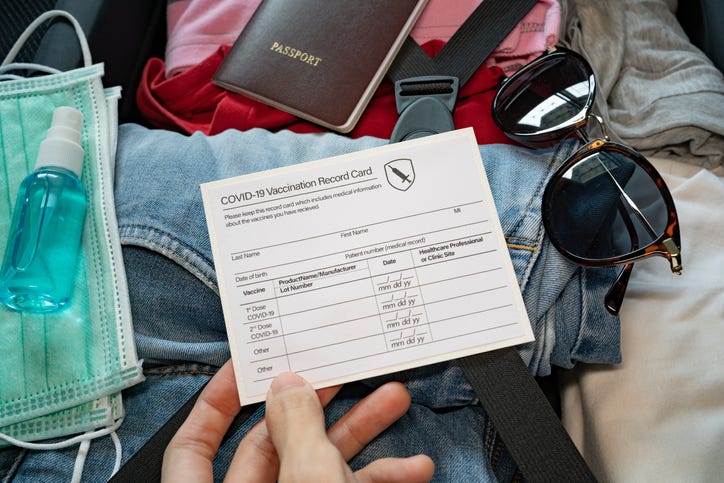
With the recent discovery of the Omicron variant, the World Health Organization is recommending that people 60 and older who are not vaccinated or have not recovered from COVID-19 put off traveling "to areas with community transmission," it said on Tuesday.
With several countries banning travel from countries where the variant was detected altogether, the WHO criticized the decision saying that travel should continue as long as travelers remain vigilant, it said in a press release.
The health agency announced its recommendation with the recent spread of the Omicron variant, and it comes days after it was labeled a variant of concern.
Right now, the guidance from the WHO is that each country does its own assessment of risk when deciding what restrictions or bans to put in place.
This includes screening passengers for COVID-19 and enforcing a quarantine for international travelers if the need arises.
"All measures should be commensurate with the risk, time-limited and applied with respect to travelers' dignity, human rights, and fundamental freedoms," the organization said in its release.
Following Omicron being named a variant of concern on Friday, 56 different countries issued travel restrictions, including the U.S., which banned travel from South Africa and seven other Southern African countries.
The WHO has continued to criticize "blanket bans" from countries and reaffirmed that point in its statement on Tuesday.
It said that "persons who have not been fully vaccinated or do not have proof of previous SARS-CoV-2 infection and are at increased risk of developing severe disease and dying, including people 60 years of age or older or those with comorbidities that present increased risk of severe COVID-19 (e.g. heart disease, cancer, and diabetes), should be advised to postpone travel to areas with community transmission."
The health organizations continued by saying essential international travelers should be prioritized during the pandemic.
It also said that other travelers who are not considered essential should try "to remain vigilant for signs and symptoms of COVID-19, to get vaccinated when it is their turn, and to adhere to public health and social measures at all times and regardless of vaccination status."
As of now not much is known about the variant, other than it has more than 50 mutations and is expected to be more transmissible than any other strain.



